Burin, Madama - Olive trees were cut off. A young man was wounded
Olive trees in Madama were cut down by settlers who beat and wounded with an iron bar a Palestinian who tried to stop them.
Burin. We had arranged a meeting in the home of our friend D. with a member of Yesh Din following a series of reports from her about harassment by settlers in their fields and in the village itself. The frequency of such incidents is increasing. Settlers, backed by armed soldiers, are apparently on the lookout from their outposts on the hilltops and descend as soon as they see the Palestinian farmers working their land. From time to time the soldiers fire tear gas grenades to chase away the Palestinians. Videos documenting these confrontations are regularly sent to us via WhatsApp. We want to keep receiving updates and jointly consider how we can help. The Yesh Din representative said that about 1000 dunums in Area B that belong to Burin, in the eastern part of the village below the outposts of Sneh Ya’akov and Giv’at Ronen, are particularly exposed. In response the head of Burin village, together with the Palestinian Authority in Ramallah, are organizing to renovate buildings in the area, including an isolated large house that had been abandoned in the early days of the occupation, and have people reoccupy it. An isolated house in the middle of fields in the southwest portion of the village, near Yizhar, in which a widow lives, will also be renovated. Convenient routes of access will be prepared in order to create facts on the ground that will make it difficult for Israel to take control of the area.
We hope to keep track of in the project if it actually gets underway.
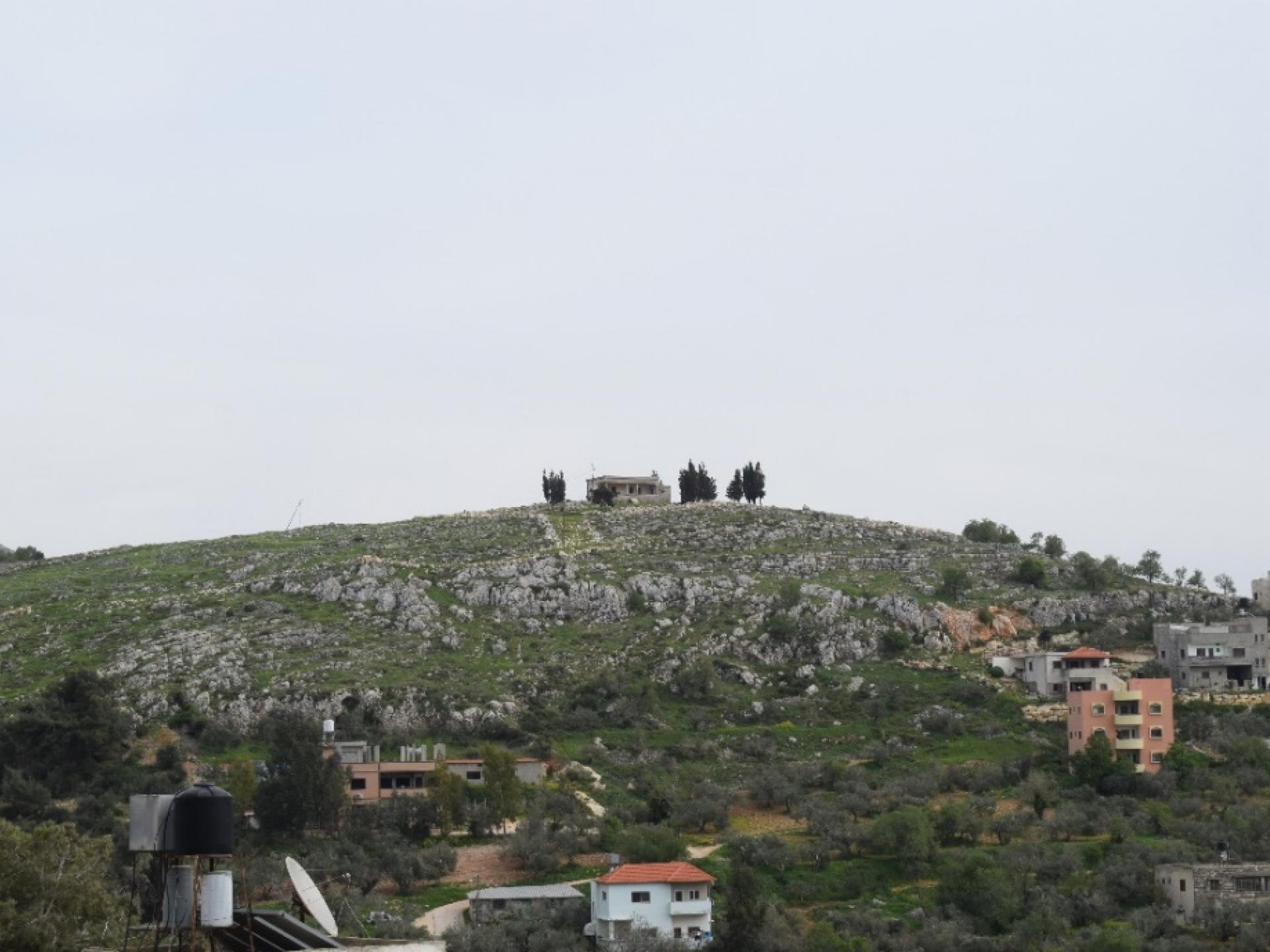
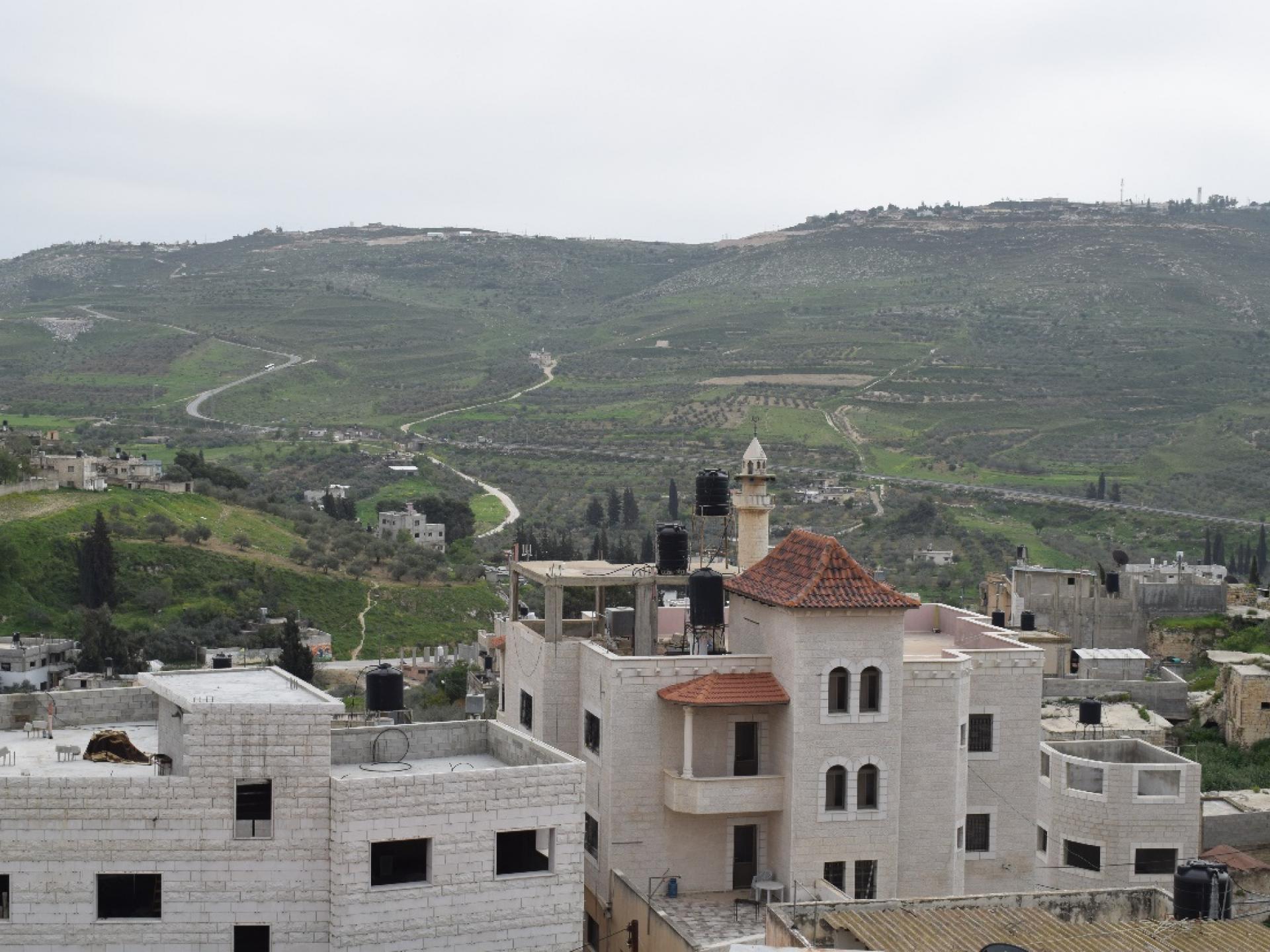
We asked about the status of the land adjacent to the Burin high school, where there are many confrontations. The Yesh Din representative said there are 55 dunams belonging to the school but located in Area C. This area had once been owned by the Kingdom of Jordan and after the occupation it (automatically) became state land. The Civil Administration intends to erect a fence that will purportedly separate the area of the school from the settlers.
intends to erect a fence that will purportedly separate the area of the school from the settlers.
During our visit to Burin we were told by our friend D. about an incident involving her nephew, the son of her husband’s sister. Rioting settlers from Yizhar hit him on the leg with an iron bar while he and eight friends were defending a grove of young olive trees that the settlers tried to cut down. The son, aged 20, a student at Al-Najah, was taken by ambulance to the hospital after being injured. He’s now at home with limited mobility. He may have suffered nerve damage because he can’t move his toes. The incident occurred on March 11, a few days before our visit.
The family lives in the village of Madama, adjacent to Burin. The father chose to build his house on an elevated, isolated location in the village because he wanted to be close to nature. The proximity of the settlement didn’t dissuade him. He added that a few days earlier Yitzhak Levy, Yitzhar’s head of security, was seen in the village armed with a rifle and behaving provocatively, as is his wont.
We drove with D. and her daughter, who’s graduating from high school this year, to the family’s home in Madama. All of us, including the father and the mother of the youth, climbed the hill to see and photograph the damaged trees. We saw about six trees that had been roughly sawed or cut down. The work appeared to have been done recently. The family’s small flock of sheep grazed near us, the younger sons accompanying them. We were struck by the pastoral scene around us. We’re in the midst of spring. An abundance of wildflowers – anemones, buttercups, tulips, irises and others. It was obvious how deeply the father felt connected to his surroundings and to nature.
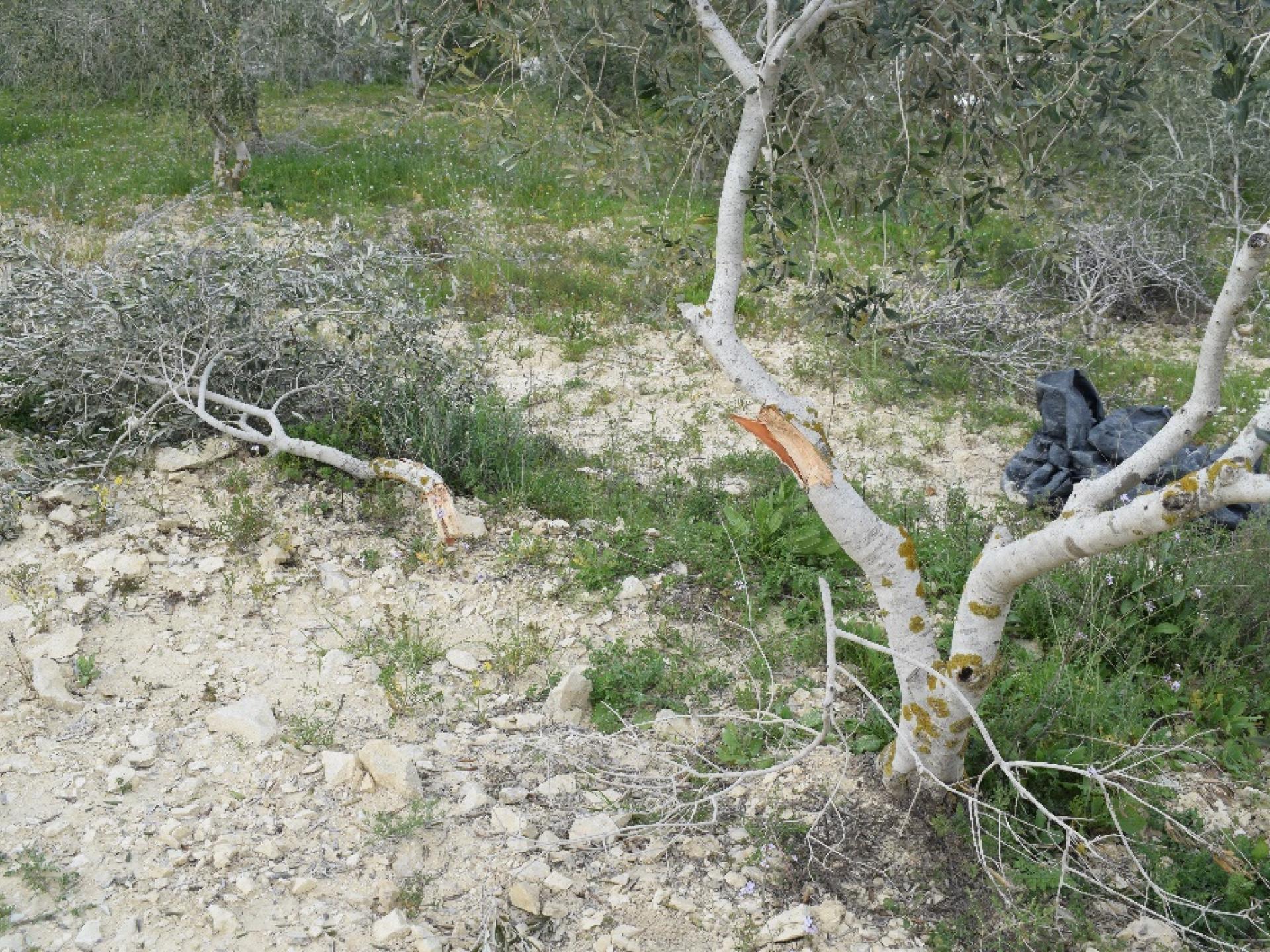
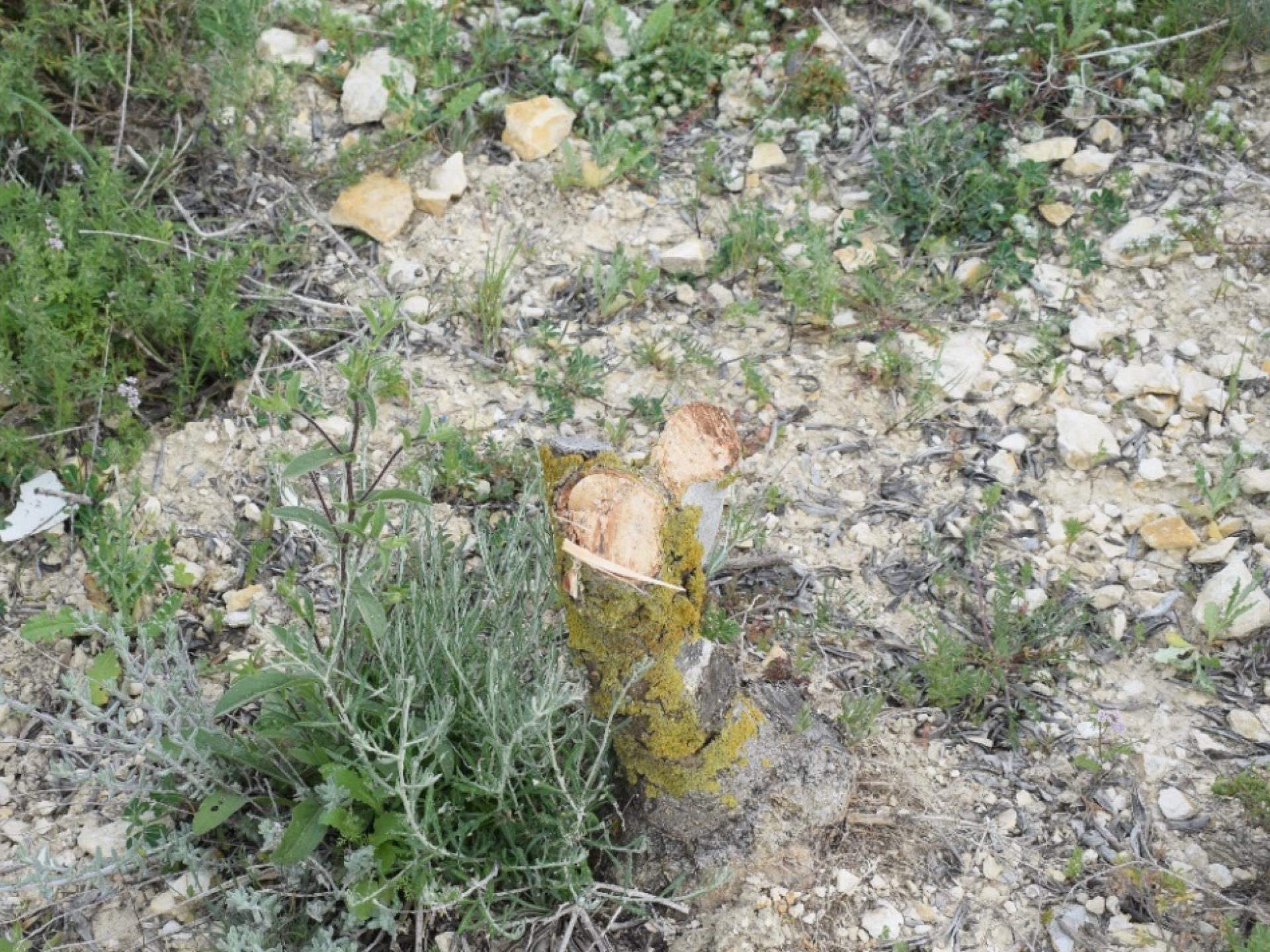
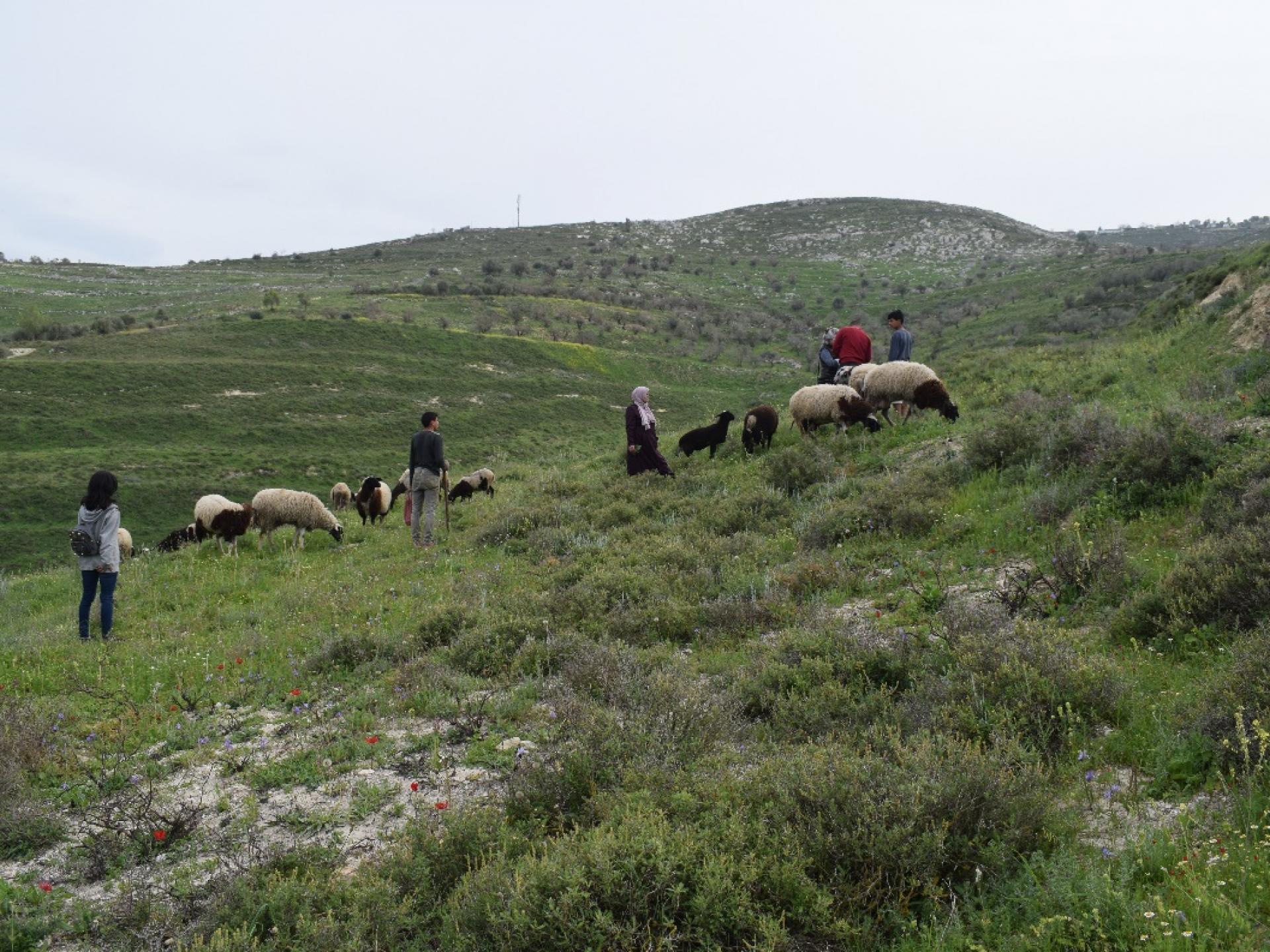
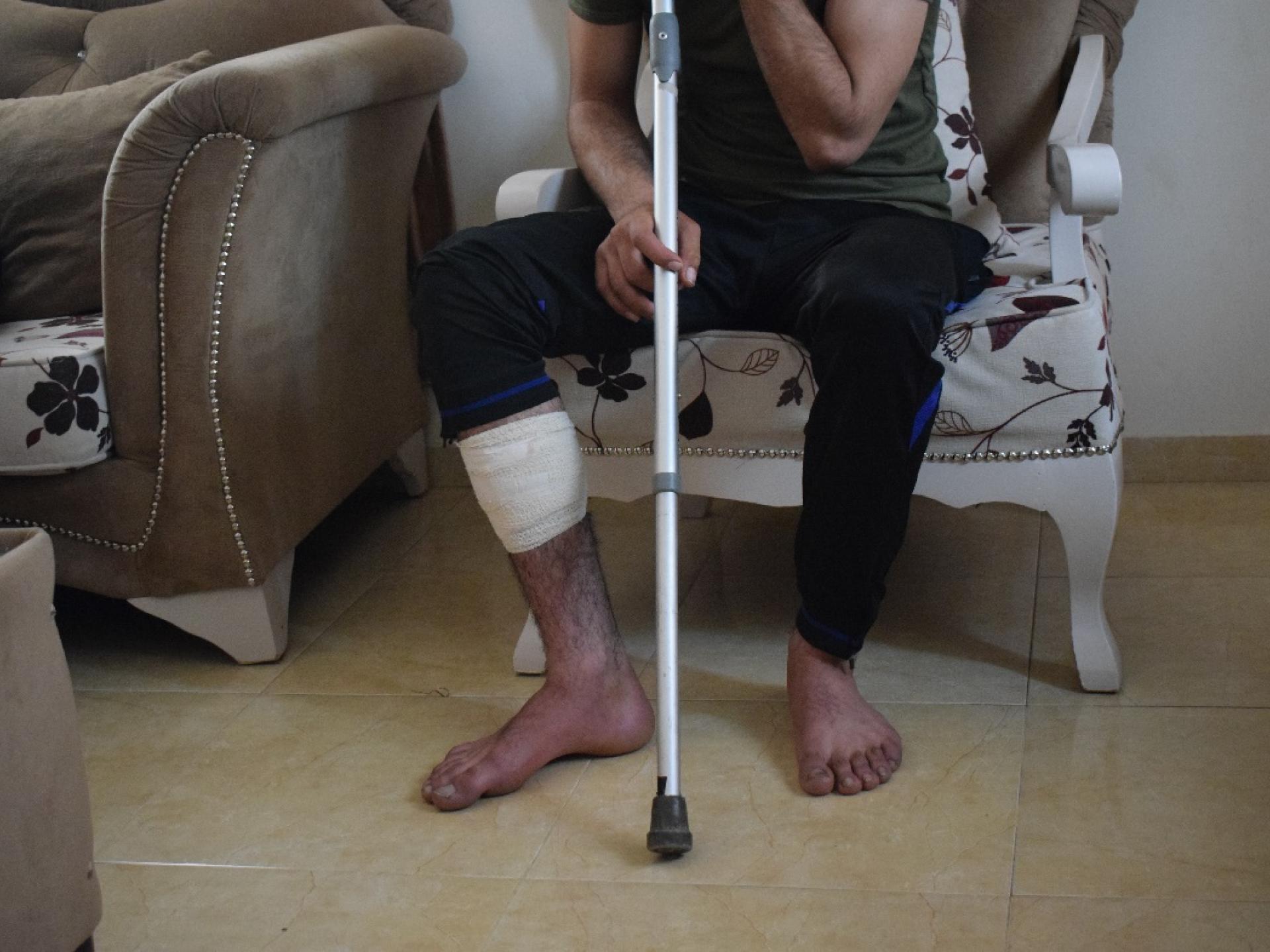
16:30 A flying checkpoint at the exit from Burin. Palestinian vehicles being inspected by IDF soldiers.
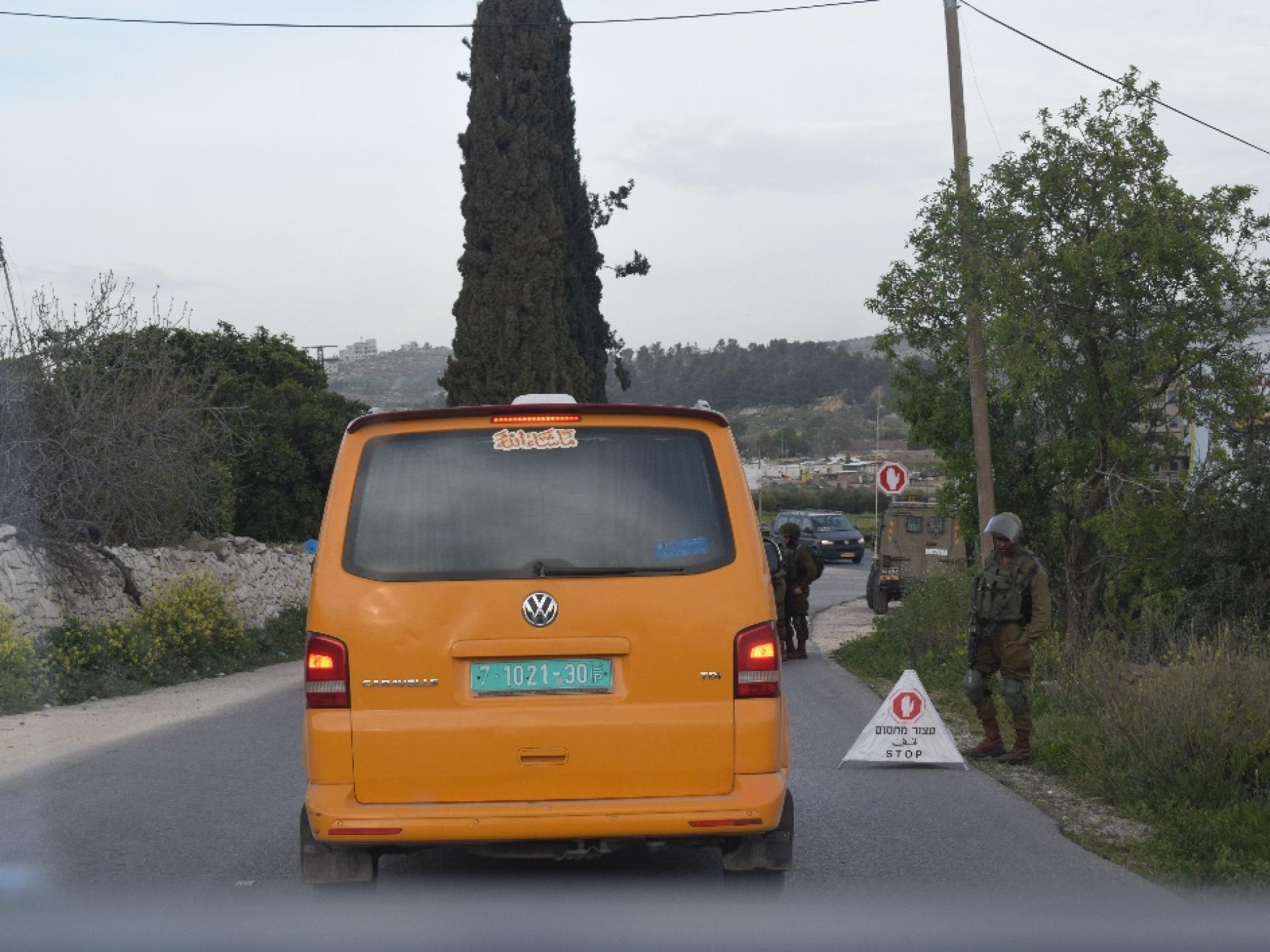
On the way to Burin we drove through Nabi ‘Ilyas and Khaja.
We stopped by the shops on the main street in Nabi ‘Ilyas. Little traffic on the road. The shop owners told us that the bypass road has caused a significant reduction in midweek sales. We saw a rabbi providing a kashrut certificate to one of the butcher shops. A glatt-kosher store. It invites Jewish customers. We were told many come to shop on Friday and Saturday, including Israelis from Tel Aviv.
In Khaja we went to M’s restaurant to ask the customers what they know about the Nabi Rabah maqam located on a nearby hill. A., a 45-year-old Palestinian, who spoke Hebrew, said that when he was a child they’d climb up to pray and have parties. They haven’t done so for years. He doesn’t know why. Maybe because the situation is so bad today, he said, without elaborating. The owners of the olive groves on the hill are not limited in their ability to access them for plowing and harvesting. They’re not aware it’s a designated nature preserve and that one day they’re liable to be notified that plowing and planting is restricted, as has occurred in the designated nature preserve in Wadi Qana.
There are four mosques today in Khaja. In the past, when they’d gone up to the maqam, there had been only one.
During the entire time we spent in the restaurant, the owner was busy serving youths and men. We saw no girls or women.
